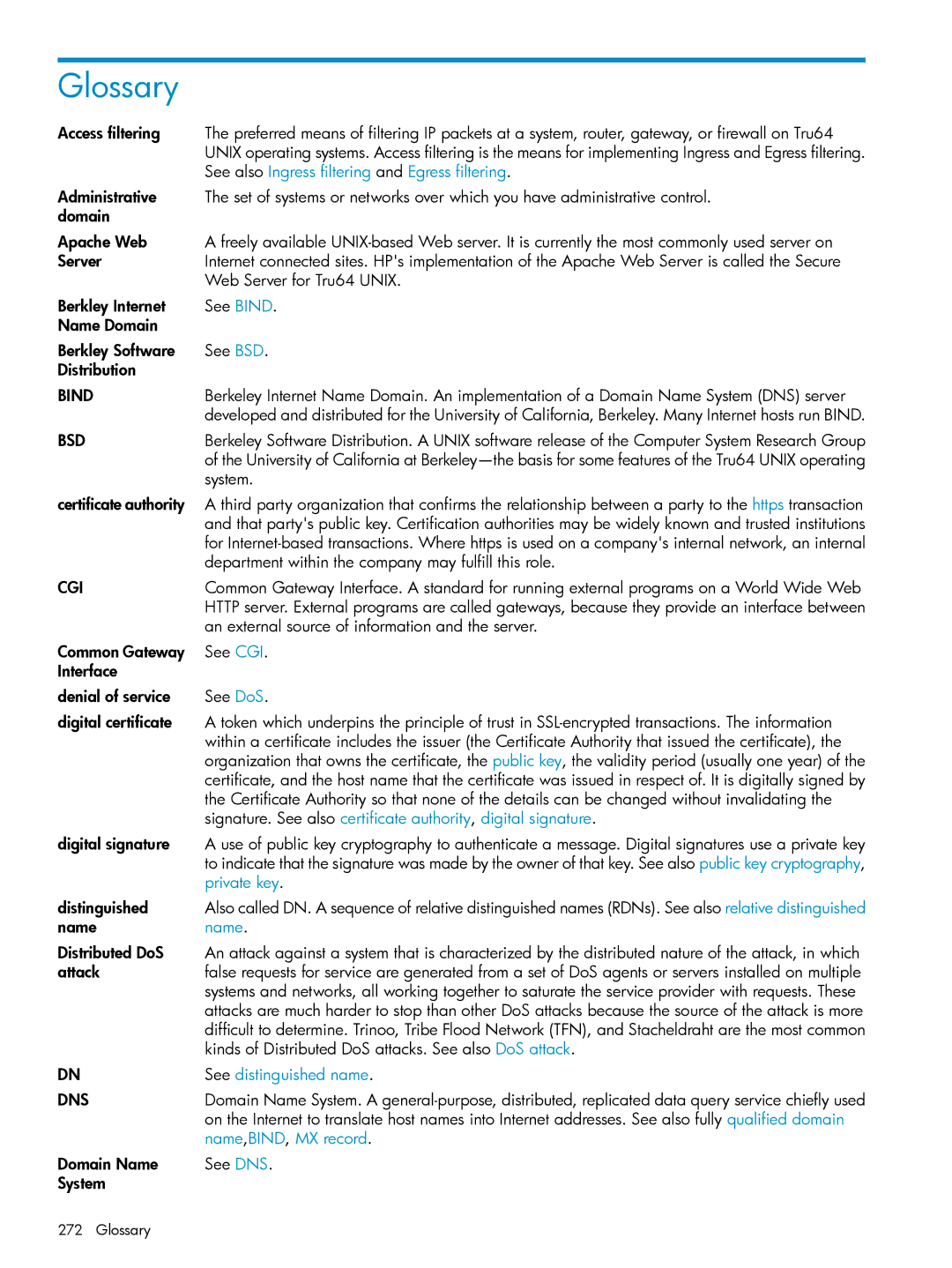Glossary
Access filtering | The preferred means of filtering IP packets at a system, router, gateway, or firewall on Tru64 |
| UNIX operating systems. Access filtering is the means for implementing Ingress and Egress filtering. |
| See also Ingress filtering and Egress filtering. |
Administrative | The set of systems or networks over which you have administrative control. |
domain |
|
Apache Web | A freely available |
Server | Internet connected sites. HP's implementation of the Apache Web Server is called the Secure |
| Web Server for Tru64 UNIX. |
Berkley Internet | See BIND. |
Name Domain |
|
Berkley Software | See BSD. |
Distribution |
|
BIND | Berkeley Internet Name Domain. An implementation of a Domain Name System (DNS) server |
| developed and distributed for the University of California, Berkeley. Many Internet hosts run BIND. |
BSD | Berkeley Software Distribution. A UNIX software release of the Computer System Research Group |
| of the University of California at |
| system. |
certificate authority | A third party organization that confirms the relationship between a party to the https transaction |
| and that party's public key. Certification authorities may be widely known and trusted institutions |
| for |
| department within the company may fulfill this role. |
CGI | Common Gateway Interface. A standard for running external programs on a World Wide Web |
| HTTP server. External programs are called gateways, because they provide an interface between |
| an external source of information and the server. |
Common Gateway | See CGI. |
Interface |
|
denial of service | See DoS. |
digital certificate | A token which underpins the principle of trust in |
| within a certificate includes the issuer (the Certificate Authority that issued the certificate), the |
| organization that owns the certificate, the public key, the validity period (usually one year) of the |
| certificate, and the host name that the certificate was issued in respect of. It is digitally signed by |
| the Certificate Authority so that none of the details can be changed without invalidating the |
| signature. See also certificate authority, digital signature. |
digital signature | A use of public key cryptography to authenticate a message. Digital signatures use a private key |
| to indicate that the signature was made by the owner of that key. See also public key cryptography, |
| private key. |
distinguished | Also called DN. A sequence of relative distinguished names (RDNs). See also relative distinguished |
name | name. |
Distributed DoS | An attack against a system that is characterized by the distributed nature of the attack, in which |
attack | false requests for service are generated from a set of DoS agents or servers installed on multiple |
| systems and networks, all working together to saturate the service provider with requests. These |
| attacks are much harder to stop than other DoS attacks because the source of the attack is more |
| difficult to determine. Trinoo, Tribe Flood Network (TFN), and Stacheldraht are the most common |
| kinds of Distributed DoS attacks. See also DoS attack. |
DN | See distinguished name. |
DNS | Domain Name System. A |
| on the Internet to translate host names into Internet addresses. See also fully qualified domain |
| name,BIND, MX record. |
Domain Name | See DNS. |
System |
|
